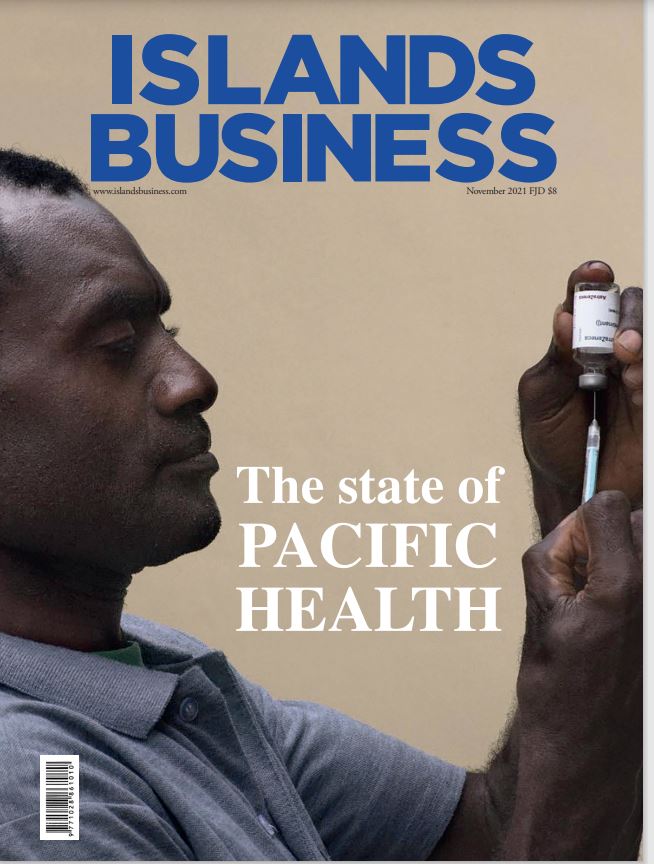Whether it was the early reports out of China in late 2019, the World Health Organization’s announcement of a pandemic in March 2020, or the dreaded first official announcement of an in-country case, everyone remembers a moment they realised the COVID-19 pandemic would change their lives. COVID-19 has since caused more than five million deaths, debilitating economies, health, and social protection systems. As its aftershocks roll on, the question remains: What can we learn from the COVID-19 pandemic to better prepare us for future health emergencies?
The Pacific has its fair share of challenges – not least the existential threat of climate change. WHO statistics confirm more than 9 million cases in the Western Pacific. Fiji tops case numbers among Pacific Island countries at around 52,000 cases and nearly 700 deaths. Tokelau, Tuvalu, Kiribati and Niue have remained COVID-free, while Samoa, Tonga, Palau and Solomon Islands have seen relatively contained numbers. For Fiji, Papua New Guinea and New Caledonia, the virus made a devastating landfall, Fiji even battling a tropical cyclone mid-lockdown.
Trust in public institutions
“In parts of the Pacific, government responses to COVID-19 have been marked by limited transparency, oversight and public engagement,” observed Joseph Veramu and Katie Mackey at Transparency International. They highlighted unheeded calls from civil society for greater involvement in government response efforts in Fiji and the broader hard-line ‘no jab, no job’ policies and allegations of misuse of public funds that have stoked controversy globally.
Fiji health authorities struggled to deliver daily updates on time, eroding trust and interest in actionable public health information. However as the pandemic wore on, authorities made significant efforts to convey clear information, translated into vernacular languages.
Public health messaging aside, anthropologist Fraser Macdonald posited that within Melanesian societies like PNG, “physicality is intimately connected to morality and spirituality”, rendering biomedical explanations for disease secondary or irrelevant.
Determinants of vaccine hesitancy
Vaccine hesitancy persists in Pacific countries, surfacing in Samoa at the height of its measles epidemic and in Fiji and PNG in response to COVID-19.
Fiji Women’s Rights Movement and Dialogue Fiji research has found that conspiracy theories and vaccine efficacy concerns outweighed religion in Fijian respondents’ reasons for not taking the vaccine.
In its rapid assessment of Fijian women’s perceptions of the COVID-19 vaccine, the Fiji Women’s Rights Movement raised “the complex health seeking behaviours of women as it concerns herbal and traditional medicine in the context of the COVID-19 vaccine” as a priority for research and collaboration.
Meanwhile Macdonald writes that with just 1.7% of Papua New Guineans fully vaccinated against COVID-19, “this is not vaccine hesitancy, but full-blown opposition, a genuine antipathy,” which has seen some equate the COVID-19 vaccine with the mark of the beast, signalling the world’s moral decline. “People also have a well-founded distrust of outsiders, and they view both the virus and vaccine as foreign assaults on PNG’s sovereignty,” Macdonald added.
Anti-vaccination sentiments notwithstanding, Papua New Guineans acknowledge that COVID-19 is real and life-threatening, turning instead to alternative treatments of faith-based healing, organic remedies and a belief in their strong natural immunity to disease.
Inoculating against misinformation
Preventing misinformation is a key lesson from the pandemic. Research shows that misinformation spreads faster than attempts to debunk falsehoods, continuing to influence thinking even when recipients are told that the misinformation is false. Understanding how to ‘prebunk’ or inoculate Pacific communities against misinformation will be critical for media, policymakers and authorities.
Dialogue Fiji found “those living in the urban [areas] (57.8%) were more likely to believe in conspiracy theor[ies] than those in rural settings (42.2%).” Scepticism surrounding vaccine safety was also found to be “higher among people who use social media as a trusted source of information, and those who believe in COVID-related conspiracy theories.”
Macdonald cautioned against dismissing local perceptions in PNG, strongly urging a respectful, sensitive approach founded on clear, detailed information to “persuade ordinary people the vaccine is a divine blessing and not a Satanic curse”.
On public health messaging, the Fiji Women’s Rights Movement recommended that the Ministry of Health develop “a clear Communications policy…led by nationals who have knowledge in public health crisis management and understand the cultural nuances of the Fijian population”.
Greater transparency not less
As Veramu and Mackey argue, a swift response in times of crisis remains crucial, requiring “greater transparency, not less,” to bolster public trust and keep citizens informed.
The Pacific has led many positive steps, including establishing the Pacific Humanitarian Pathway within weeks of the pandemic reaching its shores. Pacific Island countries have acted quickly and decisively to remain COVID-free and encourage vaccine uptake. Those battling the pandemic like Fiji have worked admirably to inform citizens and roll out vaccines, at latest count vaccinating 90% of the eligible population.
Beyond the pandemic
Not even the best equipped countries emerged unscathed from COVID-19. As research and analysis hopefully inform policies and resourcing, learning and acting in advance of the next public health emergency promises benefits beyond the pandemic.
“This is important not only for this pandemic, but also for the threats of the future – and not only for infectious diseases like COVID-19, but also from non-communicable diseases threats such as those from tobacco and our broken food system, and for environmental challenges such as pollution and climate change,” said WHO Director-General, Tedros Adhanom Ghebreyesus.
Recovering with integrity and fostering trust through nuanced public messaging to counter and inoculate against misinformation would place Pacific countries on steadier footing as they journey towards recovery.
Mere Nailatikau is a development professional based in Fiji with experience in public diplomacy, research and strategic communication. This article originally appeared in the November 2020 issue of Islands Business magazine.
